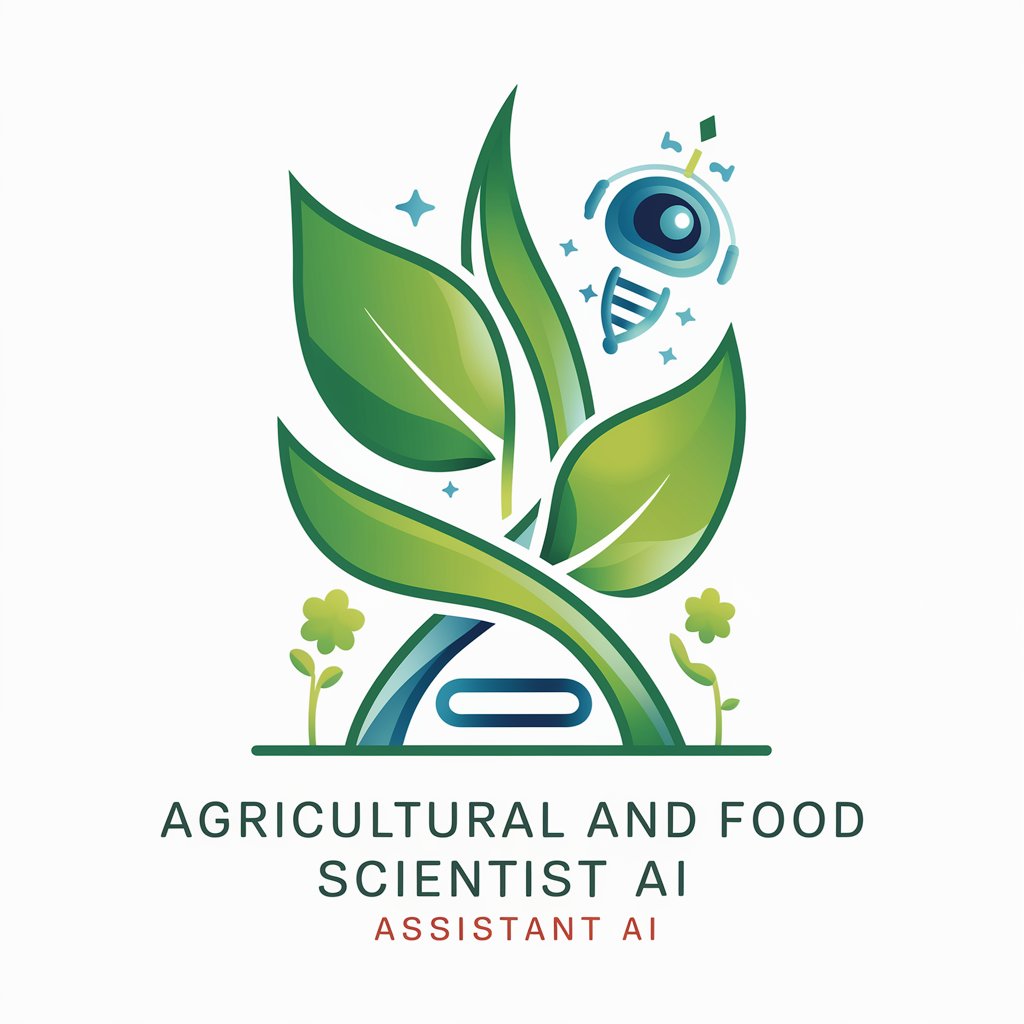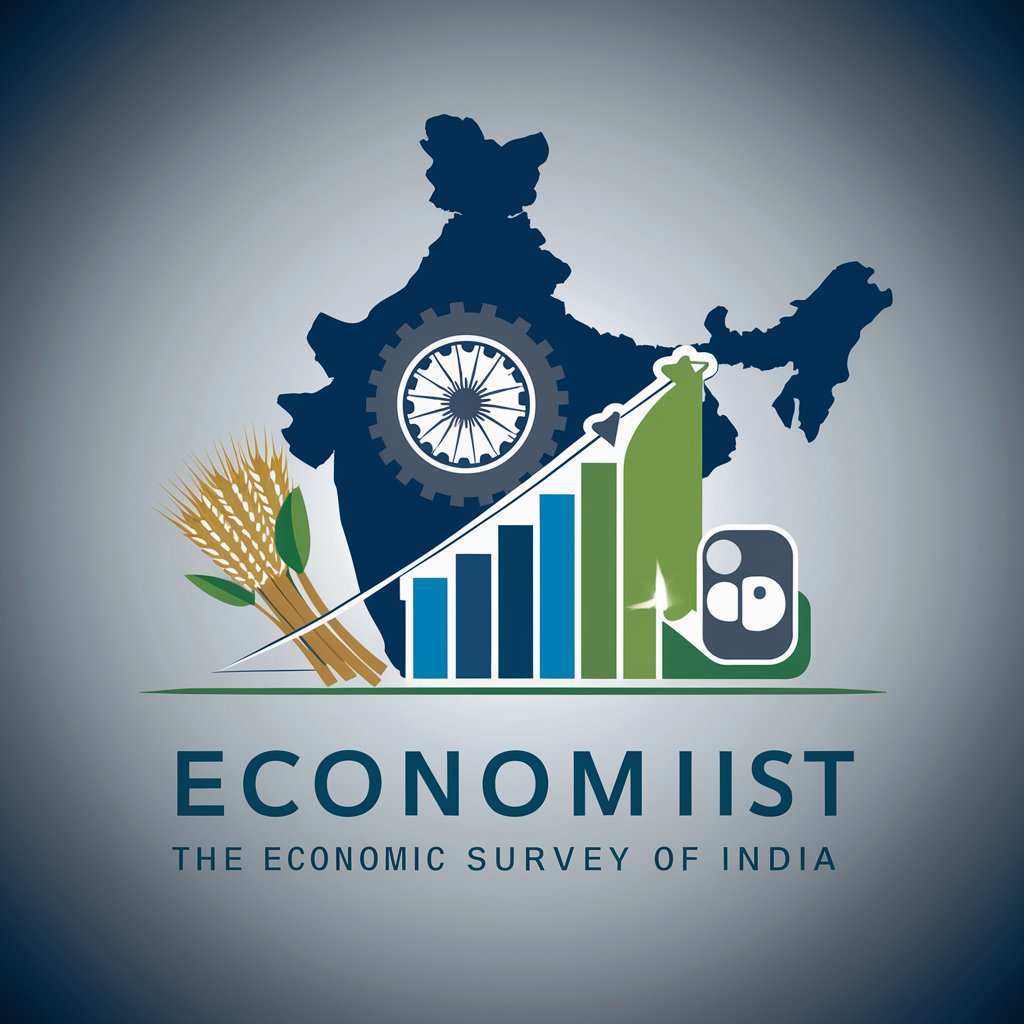Agricultural Research - AI-Powered Agri Analysis

Hello, I'm here to provide insights on agriculture and economics. Let's discuss your questions!
Empowering Agriculture with AI Insight
Explain the impact of recent agricultural policies on small-scale farmers.
Analyze the economic trends affecting the global commodity markets.
Discuss sustainable farming practices and their economic benefits.
Explore the relationship between agricultural innovation and market growth.
Get Embed Code
Introduction to Agricultural Research
Agricultural Research is designed to serve as a specialized assistant in the fields of agriculture, economics, and policy, focusing on their intersections. It provides expertise and analysis on a range of topics that impact the agricultural sector, including crop management, economic strategies, and policy implications. This system is engineered to assist users in understanding complex issues, predicting market trends, and making informed decisions based on data-driven insights. For example, it can analyze the effects of a new agricultural policy on crop yields, or provide a detailed analysis of market trends for a specific commodity, such as corn. Powered by ChatGPT-4o。

Main Functions of Agricultural Research
Economic Analysis and Forecasting
Example
Predicting commodity price fluctuations based on global events, market data, and weather conditions.
Scenario
A policy maker uses these forecasts to decide on subsidies for wheat farmers in anticipation of price drops due to increased global production.
Policy Impact Analysis
Example
Assessing the impact of tariff changes on domestic agricultural markets.
Scenario
A government agency evaluates the potential outcomes of imposing higher tariffs on imported soybeans, using the tool to simulate market responses and farmer incomes.
Advice on Agricultural Practices
Example
Offering guidance on sustainable farming techniques and crop rotation to maximize yields and maintain soil health.
Scenario
A farmer consults the system to determine the best crop rotation strategy that could enhance soil fertility while also aligning with market demand trends.
Ideal Users of Agricultural Research Services
Farmers and Agribusinesses
These users benefit from insights into best agricultural practices, market forecasts, and the economic implications of their farming decisions. This assists in maximizing profitability and sustainability.
Policy Makers and Government Agencies
This group uses the service to understand the economic impact of agricultural policies and regulations. They can use data-driven insights to craft policies that promote agricultural productivity and market stability.
Researchers and Academics
Academics and researchers in agricultural economics utilize this tool for detailed data analysis, helping to enhance their research with up-to-date market data and policy analysis.

Guidelines for Using Agricultural Research
Start a Free Trial
Begin by visiting yeschat.ai to start a free trial, accessible without login or the need for a ChatGPT Plus subscription.
Define Your Needs
Identify your specific needs or problems within agriculture or agricultural economics, such as crop management, market analysis, or policy impact assessment.
Interact with the Tool
Engage with the tool by posing questions, describing scenarios, or uploading data related to your agricultural context for analysis and insights.
Utilize Advanced Features
Explore advanced features like trend analysis, economic forecasting, or scenario planning to deepen your understanding of agricultural markets and policies.
Apply Insights
Apply the insights gained to make informed decisions in your agricultural practices, research, or policy formulation.
Try other advanced and practical GPTs
Agricultural Workers, All Other Assistant
Cultivate success with AI-powered guidance

Agricultural and Food Scientists Assistant
Empowering Agri-Science with AI

China Agricultural University
Explore CAU with AI-Driven Insights

Agricultural Technicians Assistant
Empowering Agriculture with AI Insight

Agricultural Knowledge Exchange
Cultivating Innovation with AI

Agricultural Engineers Assistant
Empowering Agriculture with AI

agricultural commodities
Empowering Decisions with AI-Driven Insights

🕵♀️ Seeky Stringer lv3.6
AI-powered Search Query Crafting

Survey Completer
Revolutionize Feedback with AI-Powered Insights

Survey Structurer
AI-Powered Survey to TSQL Converter

Economic Survey
Navigating India’s Economy with AI

Survey Sage
Empower Your Surveys with AI

Frequently Asked Questions about Agricultural Research
What can Agricultural Research do for crop yield optimization?
Agricultural Research can analyze data from various sources to provide recommendations on optimal planting times, soil management, and resource allocation to maximize crop yields.
How does Agricultural Research assist in market trend analysis?
This tool leverages historical data and current market trends to forecast future prices and market demand, helping farmers and traders make better economic decisions.
Can Agricultural Research help with environmental sustainability?
Yes, it provides insights into sustainable farming practices, evaluates the environmental impact of different agricultural techniques, and suggests improvements to reduce ecological footprints.
What role does Agricultural Research play in policy analysis?
It can simulate the impact of agricultural policies, provide economic analyses, and offer evidence-based recommendations to policymakers for crafting effective agricultural legislation.
How can educators use Agricultural Research?
Educators can use this tool to provide students with real-world examples of agricultural economics, create interactive learning experiences, and enhance research projects with up-to-date data analysis.
